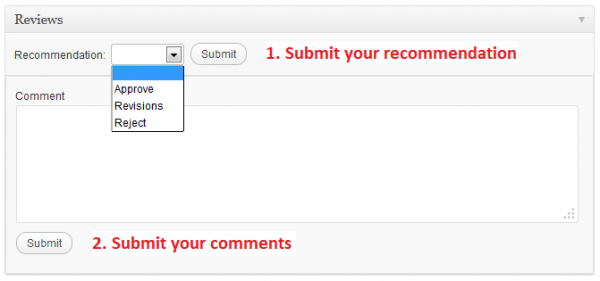Reviewer Guide
The following brief guide provides instructions for reviewing contributions submitted to PLOS Currents: Outbreaks.
Goals of the review process
The goal of the PLOS Currents review process is to determine as rapidly as possible if the conception, structure and presentation of the submission indicate that it is a legitimate work of science and does not contain any obvious methodological, ethical or legal violations. The submissions do not have to be full-length articles and emphasis should be placed on the results and data, rather than on the potential impacts.
When assessing research articles we ask reviewers to focus on the following five criteria:
Methodology – Is the methodology appropriate and has it been reported in sufficient detail to allow the replication of the work?
Results and interpretation – Do the results appear reliable? Are the conclusions supported by the results presented?
Quality of the written English – Is the English at an adequate standard for publication?
Data availability – Does the work adhere to community standards for data-sharing and reporting?
Ethical standards – Does the research meet all applicable standards for the ethics of experimentation and research integrity?
Initial e-mail requesting you to review a submission
Upon being invited to review a PLOS Currents submission, you will receive an email with the title, abstract excerpt, instructions for reviewers and a direct link to the article.
Please respond to this email at your earliest convenience to confirm or decline your interest in providing a review by emailing [email protected]
Web form for submitting your review
Once logged in to your PLOS Currents account, the URL provided in the invitation email will direct to the ‘edit article’ page for this submission, where you will be able to submit your review comments and provide a decision recommendation for this article. The ‘View Article’ or ‘Preview’ buttons found at the top of the page will allow you to view the article itself, and provide access to download a PDF version of the paper.
On the ‘Edit Article’ page, comments can be provided in the ‘Reviews’ text box which appears at the bottom of the page. The editorial recommendation (Accept, Revise, Reject) can be provided using the pull-down tab in the same box. Please note that your recommendation and comments are submitted separately, i.e. You select your recommendation and click submit, you then enter your comments and click the second submit button to register your comments.

Please note that all review comments should be provided in the “Reviews” text field, and not the ‘Internal Comments” text field. Internal Comments are made available to all users with access to the submission, including authors.
Note on formatting review comments
Formatting options are not available in the comments box and most advanced formatting will be lost when cutting and pasting in comments. However, after submitting your comment using the “edit” option will take you to an html version of your comment where emphasis and other formatting options can be added. Alternatively, you are welcome to email in any comments if needed.
Confidentiality and Anonymity
The review process is strictly confidential and should be treated as such by reviewers. As the author may have chosen to exclude some people from this process, no one who is not directly involved with the manuscript (including colleagues and other experts in the field) should be consulted by the reviewer unless such consultations have first been discussed with the Editor. Reviewers must not take any confidential information they have gained in the review process and use it before the paper is published. Even after publication, unless they have the permission of the authors to use other information, reviewers may only use publicly published data (i.e. the contents of the published article) and not information from any earlier drafts.
Identity of reviewers is not revealed to the authors unless reviewers specifically relinquish this anonymity. Invited reviewers are not visible to the authors on the website but are visible to other invited reviewers. Comments entered in the “Reviews” box are only visible to the editors and journal staff. Comments will be forwarded to the author only after the editor renders a decision. The editors and PLOS staff do not edit any comments made by reviewers that have been intended to be read by the authors unless the language is deemed inappropriate for professional communication or the comments contain information considered confidential. Comments intended for the Editor only should be clearly labelled as such.
Competing Interests
As far as possible, we respect requests by authors to exclude reviewers whom they consider to be unsuitable. We also, as much as possible, try to rule out those reviewers who may have an obvious competing interest, such as those who may have been collaborators on other projects with the authors of this manuscript, those who may be direct competitors, those who may have a personal or financial competing interest in relation to the work reported in the manuscript, or those who might profit financially from this work. Because it is not possible for all such competing interests to be known by a particular editor, we request that reviewers who recognize a potential competing interest inform the editors or journal staff and recuse themselves if they feel that are unable to offer an impartial review.
As always, please feel free to contact [email protected] if you have any questions regarding the review process for PLOS Currents: Outbreaks.
